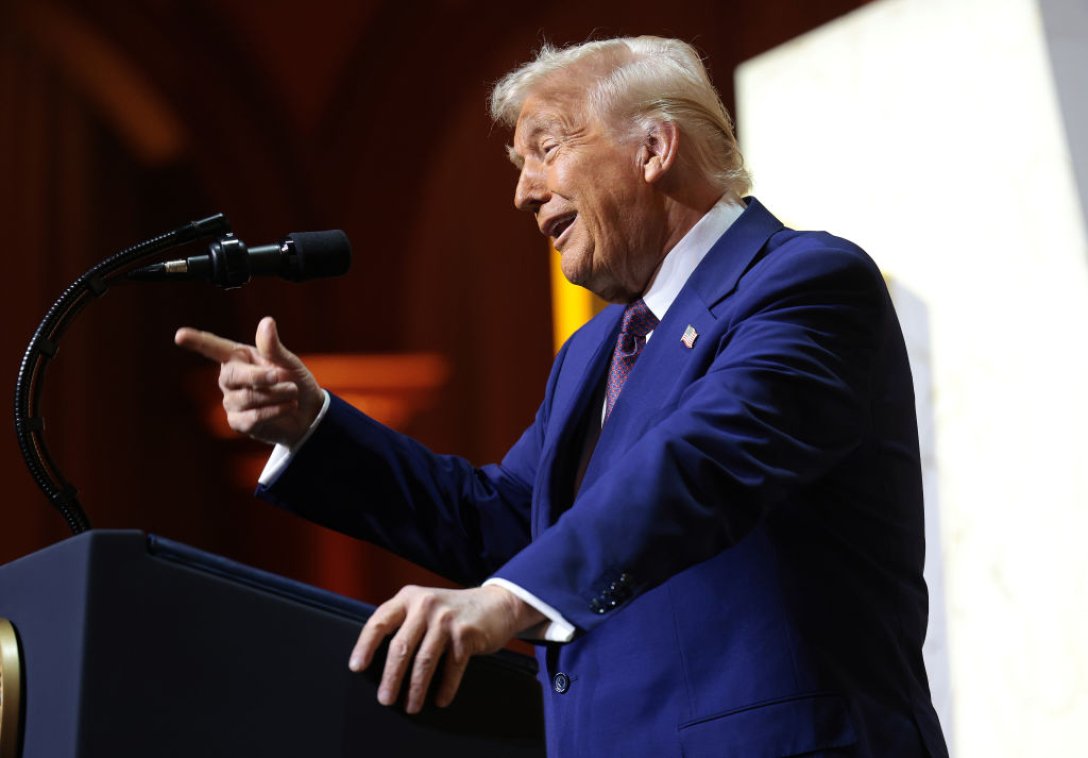At Trump's residence: Will Macron and Starmer persuade the US President to soften his stance on Ukraine?
The United Kingdom plans to hold a summit involving European countries to discuss the peaceful resolution of the Russia-Ukraine war, reports Sky News citing sources. It is noted that the meeting may be organized soon after British Prime Minister Keir Starmer returns from Washington, where he will be heading next week to meet with U.S. President Donald Trump. As noted by The Daily Telegraph, the head of the British government will present a plan to the U.S. president to deploy up to 30,000 European military personnel in Ukraine for "technical monitoring."
How Europe Plans to Support Ukraine
It should be noted that several summits of European leaders took place this week, organized by French President Emmanuel Macron, who will also hold talks with Donald Trump in Washington in the coming days. In particular, on Wednesday, February 19, just two days after the first summit in Paris, a new meeting was convened in the French capital.
While the first summit included leaders from the UK, Germany, the Netherlands, Denmark, Spain, Italy, and Poland, along with heads of EU and NATO institutions, this time according to Reuters, leaders from all three Baltic states, as well as those from the Czech Republic, Greece, Finland, Romania, Sweden, Belgium, Canada, and Norway were invited.
Regardless, the outcomes of both Paris summits revealed that European leaders were unable to formulate a unified position regarding security guarantees for Kyiv, particularly concerning the deployment of a peacekeeping contingent to Ukraine.
Recently, President Zelensky noted that the West needs to send 200,000 peacekeepers to Ukraine. However, experts estimate that even if Europe wanted to do so, it would be incapable of deploying such a number of troops. This is "beyond the EU's reach," even with the UK's involvement in the initiative. "Each major country could send about 5,000 soldiers to Ukraine. France might send a bit more," said former NATO Rapid Deployment Corps Commander in Italy Giorgio Battisti in an interview with Corriere della Sera.
Also expressing skepticism on this matter was the foreign minister of one European country, who is quoted by the Financial Times: "They (the Americans) are rightly called an irreplaceable ally... Without them, we cannot conduct any complex military operations or even solve simple tasks."
Nevertheless, having effectively acknowledged their inability to assist Ukraine with military support at this moment, the EU has agreed that Kyiv should once again be aided financially. As reported by Politico citing three EU diplomats, Brussels has decided to bolster Ukraine's position amid negotiations between Russia and the U.S. in Riyadh with a new military aid package to Kyiv amounting to at least €6 billion. This is expected to coincide with the third anniversary of the onset of the full-scale war, during which EU countries collectively provided Kyiv with support totaling €134.8 billion, including €48.5 billion in purely military assistance.
What Macron and Starmer Will Convince Trump Of
Ahead of the visit of the French president and the British prime minister to the U.S., both leaders had phone conversations with President Vladimir Zelensky. As noted from Bankova, the head of state emphasized the importance of London's and Paris's participation in achieving a just peace.

According to an expert, if Kyiv ultimately agrees to sign an agreement with the U.S. stating that 50% of Ukraine's natural resources will be handed over to Washington as something received free of charge and non-repayable, it would be a huge mistake.
"Moreover, signing an agreement on rare earth metals under Trump's conditions is unjust towards Europeans who continuously help us without compensation. Also, if we agree to the American ultimatum now, we will see a new ultimatum about surrendering to Russia tomorrow. Therefore, we can only agree to compromises, such as a ceasefire. We should not escalate the conflict with the U.S. and should refrain from public disputes. Publicly, we can say: 'Ukraine remains interested in a strategic partnership with the United States.' It should also be emphasized that we are interested in an agreement on future cooperation, not an agreement on the payment of non-existent debts. In any case, we must understand that more assistance from the U.S., as previously provided, will not be forthcoming," the expert emphasizes.
In the near future, the political scientist believes that Europe, together with the UK and other NATO countries, will be Ukraine's largest strategic partner, particularly in the security sphere. "Certainly, Europe will not fully compensate for the loss of American aid, but if their enhanced defense capabilities are partially directed toward supporting Ukraine, we can continue to resist Russian aggression. However, negotiations to end the war must be conducted not on Russian terms and with minimal concessions from Ukraine," concludes Vladimir Fesenko.
Has Ukraine Really Trapped Itself in Trump's Web?
Highlighting that Macron and Starmer are essentially "going to visit" Trump empty-handed, the political scientist added: "This only means one thing: Trump will fill their heads and portfolios with an abundance of his words, and they will ultimately return from Washington with nothing. In other words, they will not be able to persuade Trump to soften or change his rhetoric regarding Ukraine, as Trump has firmly clung to one of the points of Zelensky's 'Peace Formula' concerning the development of minerals and is now presenting us with a bill for $500 billion." In this context, Viktor Nebozhenko also recalled President Zelensky's speech at the Munich Security Conference shortly after the onset of the full-scale war, where he unmistakably hinted at the possibility of returning nuclear weapons to Kyiv, "which gave Moscow additional leverage to justify the invasion." Based on this, the expert summarized that Ukraine sometimes takes steps that ultimately are used against it, both by political friends and enemies.